 | TODAY IN SCIENCE HISTORY NEWSLETTER - 18 FEBRUARY |
| Feature for Today |
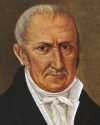 On 18 Feb 1745, Alessandro Volta was born. He's important enough in the history of science to be in just about every physics textbook! Before starting on his Nobel Prize-winning Oil-Drop experiment, Robert Millikan, as many professors have, co-authored a textbook of physics. On 18 Feb 1745, Alessandro Volta was born. He's important enough in the history of science to be in just about every physics textbook! Before starting on his Nobel Prize-winning Oil-Drop experiment, Robert Millikan, as many professors have, co-authored a textbook of physics.A novel feature of his book is that each full-page picture of historic scientists - including the picture of Alessandro Volta - had an interesting border, in which the decoration was tiny diagrams of classic student experiments. Sadly, the book gives no key to these diagrams. So today's feature is a challenge. Look at the illustration and see how many of these you can recognize! See how many you can figure out. Some are easier than others. Then use the email Reply, or website Feedback, to send your ideas the the Webmaster. (Or the ideas of the students in your science class if you teach.) Go ahead. Have fun! Or, you might be interested to look at this picture of the monument to Volta unveiled (about a half-century after his death) at Pavia in 1878 as a memorial to his work. |
| Book of the Day | ||
| ||
| Quotations for Today | |
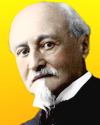 | "Let us hope that the advent of a successful flying machine, now only dimly foreseen and nevertheless thought to be possible, will bring nothing but good into the world; that it shall abridge distance, make all parts of the globe accessible, bring men into closer relation with each other, advance civilization, and hasten the promised era in which there shall be nothing but peace and goodwill among all men." |
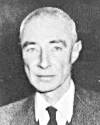 | "I am become death, The Shatterer of Worlds" |
 | "...each metal has a certain power, which is different from metal to metal, of setting the electric fluid in motion..." |
| QUIZ | |
| Before you look at today's web page, see if you can answer some of these questions about the events that happened on this day. Some of the names are very familiar. Others will likely stump you. Tickle your curiosity with these questions, then check your answers on today's web page. | |
| Births | |
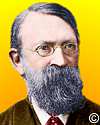 |  An Austrian physicist, born 18 Feb 1838, established important principles of optics, mechanics, and wave dynamics. He introduced a number, still named for him, for the ratio of speed of object to speed of sound. An Austrian physicist, born 18 Feb 1838, established important principles of optics, mechanics, and wave dynamics. He introduced a number, still named for him, for the ratio of speed of object to speed of sound.  Can you name this scientist? Can you name this scientist? |
 |  Count Alessandro Giuseppe Antonio Anastasio Volta, born 18 Feb 1745, was an Italian physicist whose invention of the electric battery (1800) provided the first source of continuous, reliable current produced by the contact of two dissimilar metals. His famous voltaic pile consisted of an alternating column of disks of silver and another metal separated by porous cardboard soaked in brine. Count Alessandro Giuseppe Antonio Anastasio Volta, born 18 Feb 1745, was an Italian physicist whose invention of the electric battery (1800) provided the first source of continuous, reliable current produced by the contact of two dissimilar metals. His famous voltaic pile consisted of an alternating column of disks of silver and another metal separated by porous cardboard soaked in brine.  What was the second metal he used in his voltaic pile? What was the second metal he used in his voltaic pile? |
| Deaths | |
 |  J(ulius) Robert Oppenheimer (1904-1967) was a U.S. theoretical physicist and science administrator, noted as a laboratory director during development of the atomic bomb (1943-45). J(ulius) Robert Oppenheimer (1904-1967) was a U.S. theoretical physicist and science administrator, noted as a laboratory director during development of the atomic bomb (1943-45).  What laboratory did he direct (1943-45)? What laboratory did he direct (1943-45)? |
| Events | |
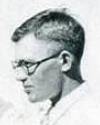 |  On 18 Feb of a certain year, the planet Pluto was discovered by Clyde Tombaugh, the only planet to be found by an American astronomer. (Well, it WAS a planet when it was discovered!) On 18 Feb of a certain year, the planet Pluto was discovered by Clyde Tombaugh, the only planet to be found by an American astronomer. (Well, it WAS a planet when it was discovered!) In which decade was Pluto discovered? In which decade was Pluto discovered? |
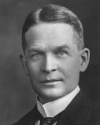 |  On 18 Feb 1913, chemist Frederick Soddy introduced a new term. He suggested that different elements produced in different radioactive transformations were capable of occupying the same place on the Periodic Table, and named such species from Greek words meaning "same place." On 18 Feb 1913, chemist Frederick Soddy introduced a new term. He suggested that different elements produced in different radioactive transformations were capable of occupying the same place on the Periodic Table, and named such species from Greek words meaning "same place."  What is this term? What is this term? |
| Answers |
When you have your answers ready to all the questions above, you'll find all the information to check them, and more, on the February 18 web page of Today in Science History. Or, try this link first for just the brief answers. Fast answers for the previous newsletter for February 17: the halftone screen that would convert a photograph into a pattern of tiny dots; stethoscope; Remington; the decade including the year 1938; Dmitri Mendeleev. |
| Feedback |
 If you enjoy this newsletter, the website, or wish to offer encouragement or ideas, please send feedback by using your mail reader Reply button. If you enjoy this newsletter, the website, or wish to offer encouragement or ideas, please send feedback by using your mail reader Reply button. |
--
If you do not want to receive any more newsletters, this link
To update your preferences and to unsubscribe visit this link
If you do not want to receive any more newsletters, this link
To update your preferences and to unsubscribe visit this link
! !





Δεν υπάρχουν σχόλια:
Δημοσίευση σχολίου